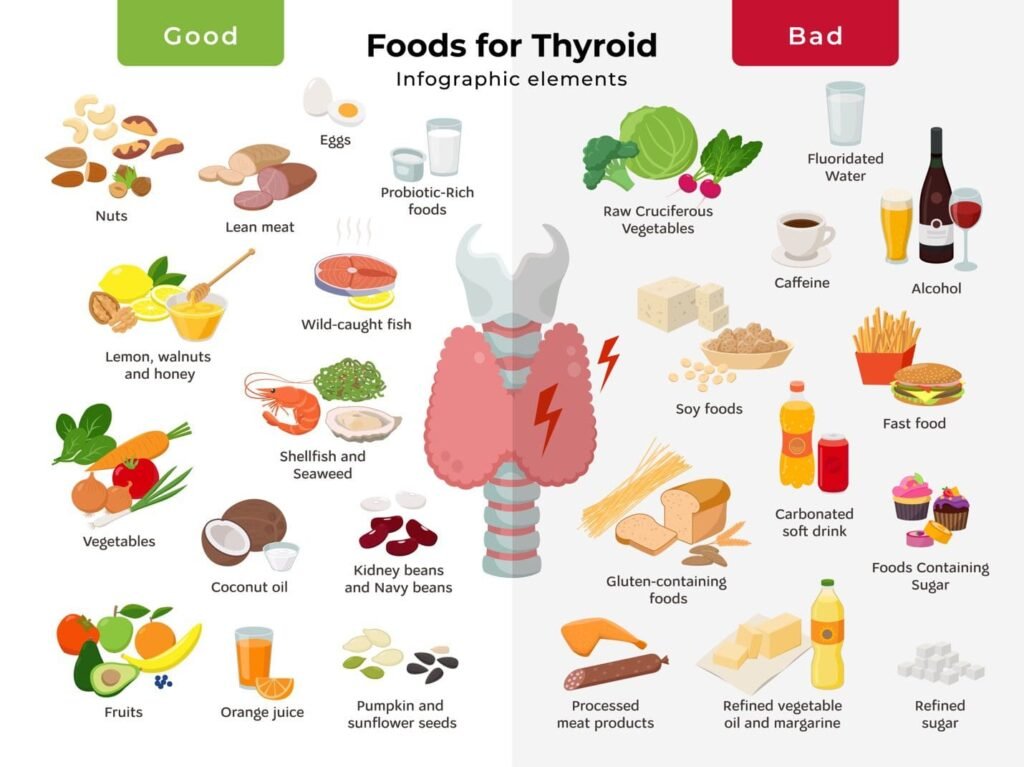

Being diagnosed with a thyroid disorder can feel overwhelming, but with the right approach, it’s entirely possible to lead a healthy, balanced life. Whether you have hypothyroidism or hyperthyroidism, understanding how to manage your lifestyle, diet, and medication can make a big difference.
Thyroid disorders result from the gland producing either too much or too little thyroid hormone. The goal of treatment is to restore hormone balance and reduce symptoms. However, long-term management requires ongoing attention to your diet, stress levels, and general health habits.
Your thyroid needs proper nutrients to function efficiently. Focus on:
Foods to limit:
Regular movement helps boost metabolism and energy levels. Choose moderate activities like walking, yoga, or swimming. If you have hyperthyroidism, avoid high-intensity workouts that may overstrain the heart.
Stress directly affects hormone balance and can worsen thyroid symptoms. Incorporate daily relaxation practices such as meditation, breathing exercises, or nature walks. Quality sleep is equally vital—aim for 7–8 hours per night.
Never skip follow-up visits or blood tests. Regular thyroid function tests (TFTs) help doctors adjust medication as needed. If you experience sudden changes like weight fluctuation, mood shifts, or palpitations, consult your healthcare provider immediately.
If prescribed thyroid medication, take it as directed—typically on an empty stomach, 30 minutes before breakfast. Avoid taking it alongside calcium or iron supplements, as these can interfere with absorption.
Many people with thyroid disorders experience mood swings, anxiety, or depression. Joining a thyroid support group or talking to a counselor can help you cope emotionally. Remember, thyroid imbalance affects both physical and emotional health—be kind to yourself through the healing process.
Managing thyroid disorders isn’t just about taking medication—it’s about nurturing your entire body. With mindful nutrition, regular exercise, stress control, and consistent medical care, you can live a vibrant, active life. Awareness and early management are the keys to long-term thyroid health.
